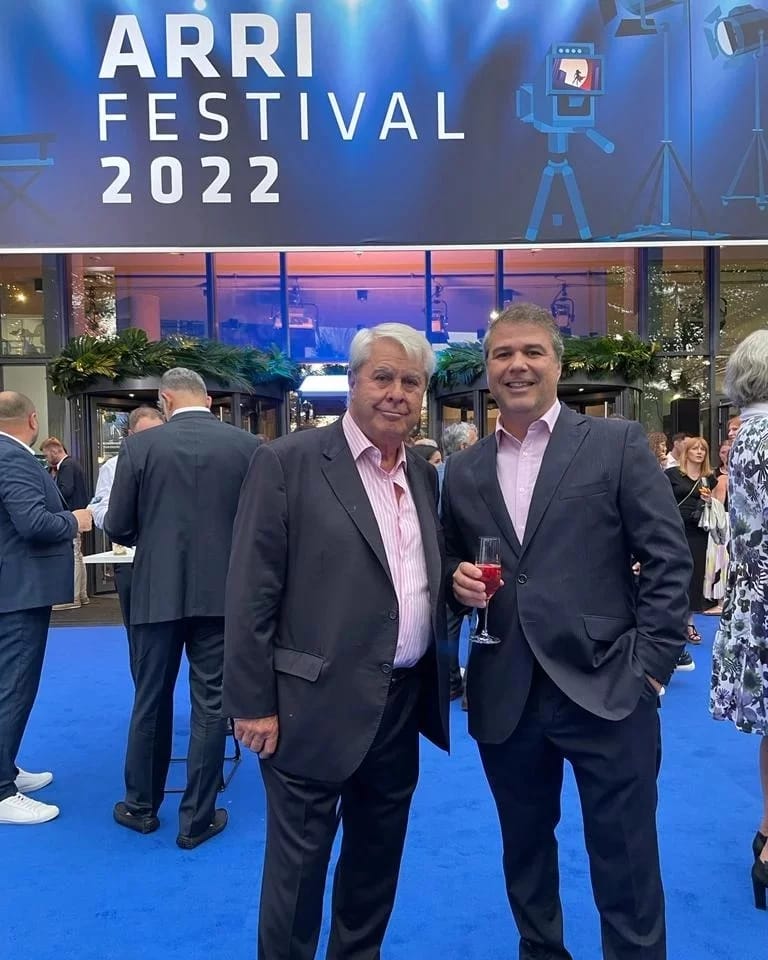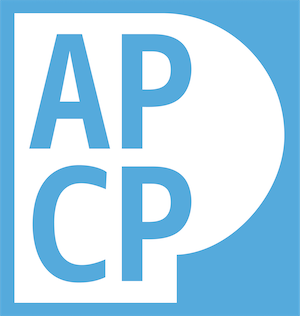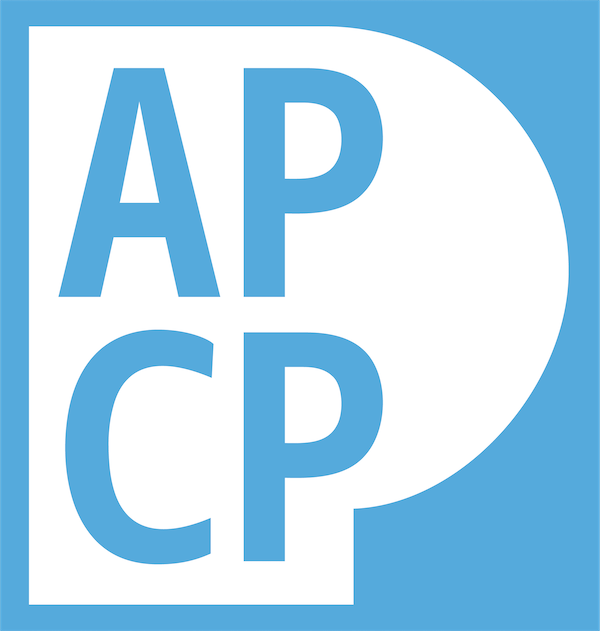

Eduardo Pérez Climent, founder of EPC and his son Oscar Pérez, General Manager of EPC in Spain and Portugal.
In this interview, we dive into the trajectory of EPC (Equipos Profesionales Cinematográficos), an unquestionable leader in the Spanish film industry. Its sponsorship was essential in the XI Jornadas de Producción de Cine Publicitario for the event to become a reality. Therefore, we want to take you into the heart of EPC so you can learn how it works its magic in the seventh art industry.
With more than three decades of dedication, EPC has established itself as a fundamental pillar in the Spanish film industry. Throughout this time, they have forged solid relationships with leading multinational companies, such as Panavisión, of which they are the exclusive representative in Spain and Portugal.
The company was founded by Eduardo Pérez Climent, a visionary who, with training acquired in the field and enriched by his own experiences, was able to identify the needs of the sector. Through EPC, they have been able to respond to the demands of the industry with a commitment to quality and professionalism, marking a trajectory that differentiates them within the world of cinema.
EPC is part of ALIA (Audiovisual Industry Alliance), an association with a lot of strength in the sector. What does it mean to be part of ALIA in a tangible benefit for EPC and the industry in general?
ALIA was born with the vocation to bring together and give strength to companies that are part of all stages of the audiovisual production process. More than a tangible benefit for EPC, we think this should be a benefit for all partners. We have managed to be taken into account in decision making in many aspects related to the audiovisual industry, we have become visible to other associations and to the different administrations. Today we belong to the Audiovisual Cluster of Madrid and collaborate with APCP, PROFILM, AEC, ECAM, RAMPA and SHOOTING LOCATIONS. We have managed to promote collaboration between companies and position ourselves to promote new lines of business.
You also collaborate with film schools to help the professionalization of the sector, how do you manage to help with this?
We have been collaborating for years with film schools such as ECAM, TAI, MAKKERS, PUERTA BONITA among others. We receive visits from students from the Complutense University, even from other communities such as Seville. We help with the filming practices of ECAM students by offering them advice and equipment so that they can carry out their last year filming. The students come to EPC with their professors to practice how to check equipment before shooting and we collaborate with the students’ internship and internship programs.
We also collaborate with the internship and internship programs for the students here at EPC, both curricular and when they finish their studies. Here they get to know the operation of cameras and accessories and come in contact with the professionals and some end up entering the professional circuit by meeting the camera crew teams that come daily to prepare the equipment.
Every year we award a scholarship of 3,000 euros to a student in the 3rd year of Photography at ECAM.
You currently have three branches in Madrid, Malaga and the Canary Islands. What are the challenges and benefits of this geographical expansion?
Madrid, Malaga and the Canary Islands, indeed. Many challenges, we have to be able to provide service in these 3 branches and that customers always have the best service. For us it is a huge investment to have teams available in Madrid, Malaga and the Canary Islands. We are expanding our portfolio of local customers and we offer the possibility for existing customers to have their equipment checked at each location.
What strategies do you follow to differentiate your service, customer care and technical knowledge in such a competitive market?
In terms of differentiating ourselves, we believe that we provide one of the best services in the industry, 24-hour service, since our maxim is that no shoot should be delayed due to technical problems. We have the best professionals, both in the preparation of equipment and technicians capable of repairing lenses, cameras … We are one of the few companies that have the equipment and experience of over 30 years for shooting in photochemical, both 35mm and S-16mm. We attend film festivals for relations with producers, fairs all over the world to meet our suppliers and the new equipment available for our clients’ shoots and we also attend CAMERIMAGE (directors of photography festival). So we cover Clients, Suppliers and Directors of Photography, all very important to know in which direction EPC’s strategy should go.
We would like to know how you address concerns about the environmental impact of film production?
According to some studies, it is estimated that a film shoot generates 500 tons of CO2. It is clear that at EPC we understand the concern that this generates. At EPC we are changing our generators for ECOFLOWS for the operation of our grip and camera equipment. We have installed 30KV solar energy in our building and we are studying the replacement of trucks and vans with electric or plug-in hybrids as well as recycling everything that can be recycled. The Tenerife Film Commission was a pioneer in publishing a decalogue for sustainable productions with which we could not agree more:
1. Communicate to the film crew measures to reduce the environmental impact; 3. Protect locations and their environmental surroundings; 4. Promote efficient and sustainable mobility; 5. Implement available catering; 6.
At APCP, we try to find out where the companies we work with are heading and, given the constant evolution of film technology, how do you keep abreast of the latest trends? And how do they affect your commercial and strategic decisions?
EPC’s goal is none other than to have the capacity to supply all the equipment that our clients need for the realization of their future projects. To continue with our 24h service and to count on the best professionals.
Interview by Marina Carazo






